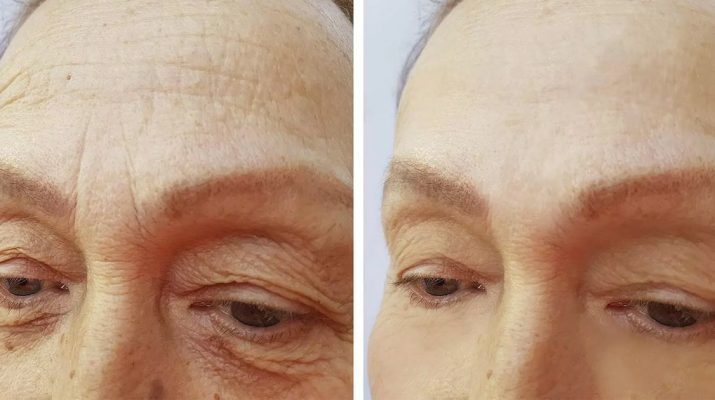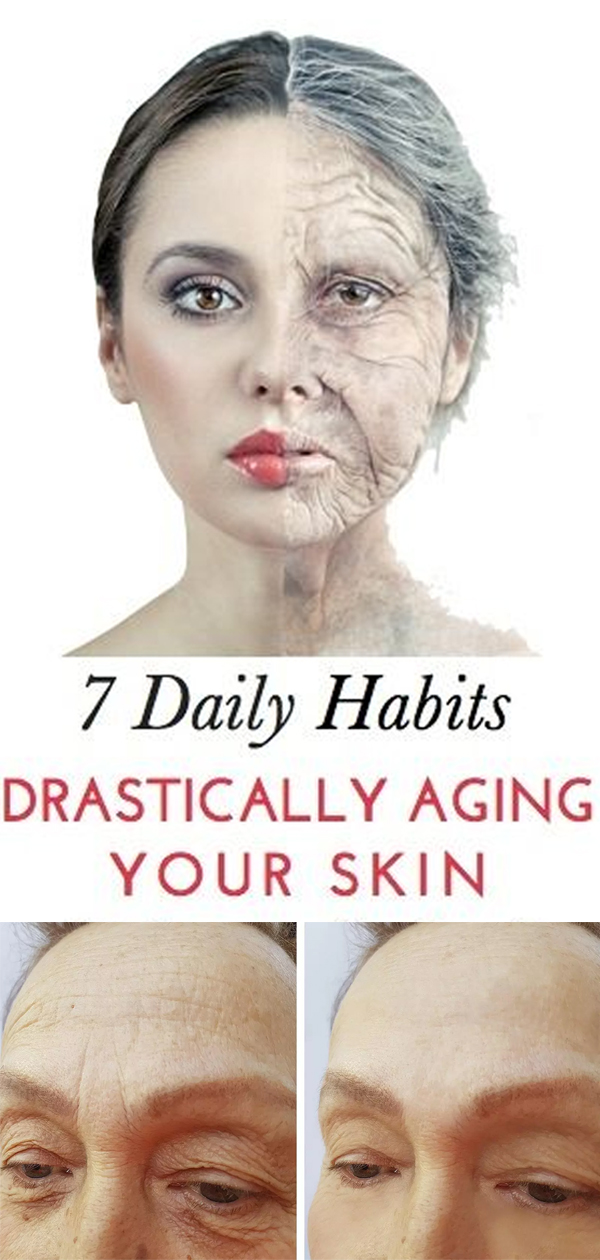There are both mental and physical habits that can both drain our energy and cause us to age faster. It is no exaggeration to think that how you feel when you’re older is a testament to how you lived when you were younger.
One of the remarkable aspects of the human body is its resilience. No matter your age, it is never too late to start making healthier choices – and feel younger!
So, let’s get to it!
Here Are Seven Daily Habits That Make You Age Faster (And What To Do About Them!).
-
Smoking
Of all the habits that accelerate aging, lighting up may take the cake. Tobacco smoke damages DNA suppresses the immune system and causes age-related physical symptoms (e.g. wrinkles, age spots). Fortunately, it is possible to quit smoking and reverse much of the damage done to the body, including the skin.
Researchers from the International Association of Ecologic Dermatology in Milan, Italy, in a study entitled “Quitting smoking rejuvenates the skin,” evaluated the skin health of 64 female smokers over an abstinence period of nine months. The research team performed skin tests (along with psychological and nutrition tests) at 3, 6, and 9 months.
Each woman’s appearance was evaluated visually and given a score on six criteria associated with skin aging: skin brightness, elasticity, lines, pigmentation, texture, and vascularization (formation of blood vessels and ease of oxygen flow) of the skin. Researchers then graphed the results to have a visualization of the effects of quitting smoking on the skin.
After analyzing the data, researchers found an average age reduction of about 13 years! This effect is even more astounding when one considers that, before the experiment, the women appeared an average of 9 years older!
-
Being A Couch Potato
Multiple studies confirm what many of us already know: being a couch ‘tater is bad for health. Studies also show that sedentary habits are becoming more common while physical activity is trending downwards. It turns out that one’s cognitive abilities, particularly executive functioning and processing speed, are adversely affected by too much downtime.
In a 25-year study, researchers found that people who watch more than three hours of television per day do worse on tests of executive function and processing speed. Executive functions of the brain “are skills every person used to process and act on incoming information.” They include emotional control, flexible thinking, impulse control, self-regulation, organization, task initiation, planning, and working memory. Processing speed is the amount of time it takes for someone to understand and react to sensory information.
The solution, of course, is to become more physically and mentally active. The U.S. Department of Health and Human Services recommends a minimum of 150 minutes of moderate aerobic exercise or 75 minutes of vigorous aerobic activity a week.
You can keep your brain active and restore its health by doing things that are both enjoyable and challenging. Some ideas include:
- Listening to classical music
- Doing mental math
- Learning a new language
- Eating a new cuisine
- Taking an online course
- Testing your memory
-
Not “Ohm-Ing” Out
Yes, we are talking about meditation. Far from being a mystical mental activity designed for hermits and monks, meditation is, quite possibly, the best thing that one can do for both their body and mind. Since individuals like Maharishi Mahesh Yogi, Alan Watts, and Ram Dass “brought” meditation over from the East, researchers have been astounded as to what extent quieting the mind can benefit a person. (Concerning the former, there are multiple methods of meditation that are compatible with – and irrelevant of – any religious or spiritual belief. “Western” Zen meditation is one such practice.)
Researchers say that people who meditate have higher concentrations of grey matter in multiple brain areas – including those responsible for decision-making, emotions, impulse control, hearing, seeing and speech. Robert H. Schneider, a physician, and scientist who has studied the effects of one particular type of meditation, Transcendental Meditation (or ‘TM’), says:
“[Research on TM] has found reduced blood pressure, increased insulin resistance, slowing of biological aging, and (a) 48 percent reduction in the rates of a heart attack strike and death.” Such convincing discoveries have led the American Heart Association (AHA) to issue a statement indicating that doctors should consider “prescribing” TM as a treatment for high blood pressure.
So, while not meditating doesn’t technically “age” someone, refraining from the practice denies their body a natural and effective way of improving age-related health factors.
-
Being A Slouch
Our spine has a natural, S-shaped curvature that allows it to support and stabilize our upper body. Over time, slouching – over a desk, on a chair, or somewhere else – gradually causes muscle strain and tightening spinal misalignment, and even lower back pain, hip pain, or neck pain. Poor posture affects various bones as well as the disks of the spine.
Per the American Chiropractic Association, there are various things one can do to improve their sitting, standing, and lying posture, including:
(Sitting)
- Keeping your feet on the floor or footrest
- Avoiding sitting in one position for an extended period
- Relaxing your shoulders
(Standing)
- Keep your knees slightly bent and feet shoulder-width apart
- Put most of your weight on the balls of your feet
- Stand straight and tall with the shoulders pulled slightly back
(Lying)
- Don’t sleep on your stomach
- Use a firm, comfortable mattress
- Support your body by sleeping with a pillow
-
Blasting Music
This one’s kind of a double-whammy. Age is already the leading cause of hearing loss, with 1 out of 3 people aged 65 and older, and 1 out of every 2 over 75, having “significant” hearing loss. Now, researchers say that blasting the tunes can, in effect, expedite hearing loss.
Per the National Institutes of Health, loud noises – even in brief intervals – can damage parts of the inner ear, causing noise-induced hearing loss (NIHL). NIHL may result from a one-time “explosive noise,” or, more commonly, exposure to high volumes over a long period.
Other examples of activities that increase the risk for NIHL include: attending loud concerts, listening to music with earbuds or headphones at high volume, recreational shooting and hunting, and using loud home appliances and equipment.
As a rule, any noise above 85 decibels (dB) can cause hearing damage. An MP3 player at maximum volume registers around 105 decibels. Other noises that meet or exceed the 85-dB threshold include heavy city traffic (85), lawn mowers (90 to 110), motorcycle engines (95), sirens (120), firecrackers (150), and firearms (150).
To reduce your risk of NIHL:
- Be mindful of noises that can cause hearing damage (anything about 85 dB).
- Listen to music at less than ¾ maximum volume.
- Move away from loud noises when possible.
- Wear quality earplugs or protective earmuffs when near loud noises.
-
Bad Sleep Habits
Sleep deprivation is linked to multiple health disorders, including cancer, diabetes, immune disorders, and obesity. But did you know that depriving yourself of sleep can age your skin, making you appear older?
In a 2013 study supported by the beauty company Estee Lauder, researchers found that “chronic inadequate and poor-quality sleep accelerates intrinsic aging” including signs of skin aging, reduced skin elasticity, and irregular pigmentation. Additionally, those with poor sleeping habits felt subjectively worse about their physical appearance than others. Furthermore, the study found that poor sleeping habits reduce the skin’s moisture levels and erode the permeability barrier. As a result, the skin is more susceptible to bacteria, toxins, and viruses.
Per the National Sleep Foundation, here are a few ways to improve your sleep habits:
- Go to sleep and wake up at the same time every day, including weekends.
- Having a relaxing bedtime ritual.
- Avoid extended afternoon naps.
- Exercise every day.
- Keep your room at a cool temperature.
- Use a comfortable mattress and pillows.
-
Work-Related Stress
We all know that avoiding work stress is impossible. But experiencing constant stress, whether from work or elsewhere, is a surefire way to speed up aging. We mention work because (surprise!) it is the leading cause of stress for most people.
Stress’ effects are cumulative; it can interrupt sleep, raise blood pressure, and impact cognition (especially memory). In a study published in the open-access scientific journal Plos One, Finnish researchers found a link between prolonged work stress and accelerated biological aging.
The scientists made the above determination by measuring what are called telomeres, or “caps” at the end of DNA strands that protect the chromosomes. Researchers have thought for a long time that telomere plays an essential role in cellular aging. Additionally, damage to telomeres is linked to an increased risk of cancer.
Reducing work-related stress can be difficult, but here are a few practical solutions:
- Learn mindfulness and diaphragmatic breathing.
- Get outside for your breaks and lunch.
- Don’t eat at your desk.
- Read your email at certain times during the day (ideally no more than twice).
- Begin a new job search if needed.
- Ask to work from home once a week.
Final Thoughts On Daily Habits That Make You Age Faster
Even if none of us have yet discovered the fountain of eternal youth, avoiding the above habits can help you feel and look more youthful. As much as possible, try to avoid stress at work and at home. Take care of your body and your mind, and they will take care of you as well. Here’s to health!


